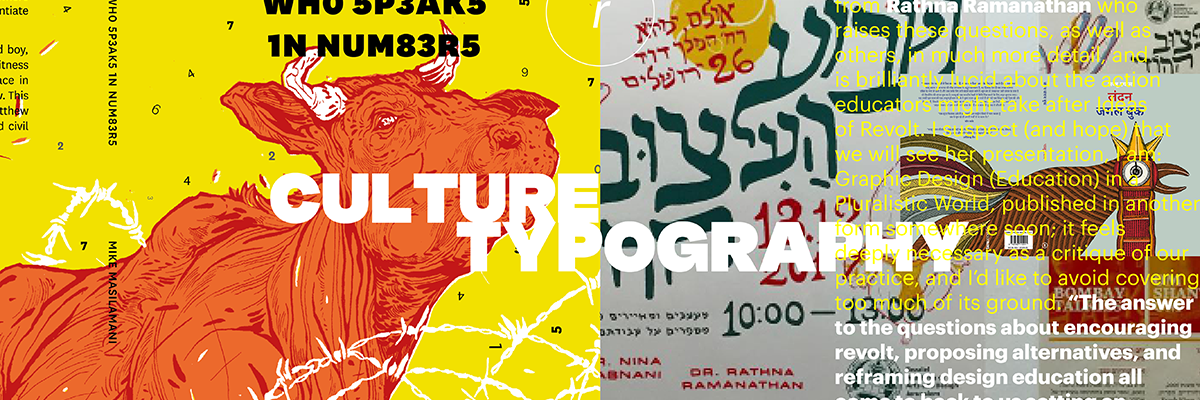
Intercultural and decolonial: exploring frameworks for typographic practice
with
Dr. Rathna Ramanathan
Digital connectivity, international migration and global health crisis have necessitated an urgent reconsideration of our approach to communication, language, and typography. Rathna Ramanathan’s talk as part of the Herb Lubalin Lecture series evaluates western canons and frameworks of typography and considers why taking an intercultural and decolonial approach to typographic practice is critically needed.
Using examples from publishing practice – particularly, the Murty Classical Library of India, published by Harvard University Press, and books by Tara Books, an independent publisher in India — the talk explores different notions of reading and audience and stresses the importance of considerations of culture and context in our approach. It highlights examples from historical contemporary design practice to suggest developing a framework for typographic practice that considers different writing systems, visual cultures and multiple language contexts.
The Murty Classical Library of India, published by Harvard University Press is a facing-page translation series that aims to present the greatest literary works of India from the past two millennia to the largest readership. The project provided a significant type design and typographic design challenge to create a framework for multiple languages now realised in 30 published titles. The typesetting and design of bilingual Indic texts of such range and complexity was unprecedented in modern book design practice and posed many challenges.
Tara Books is an independent, feminist publisher that focuses on providing voice to marginalised communities and publishes texts for both young children and adults. Working within a vibrant Indian visual culture and context, Tara has explored different ways of reading that challenge convention and tradition. Their approach has pioneered a new approach to typography in India that is inspired by the unusual and unqiue context in which their books are made.
The Herb Lubalin Lectures are recorded and made available here and on Vimeo with the generous support of TypeCulture.
About Dr. Rathna Ramanathan

